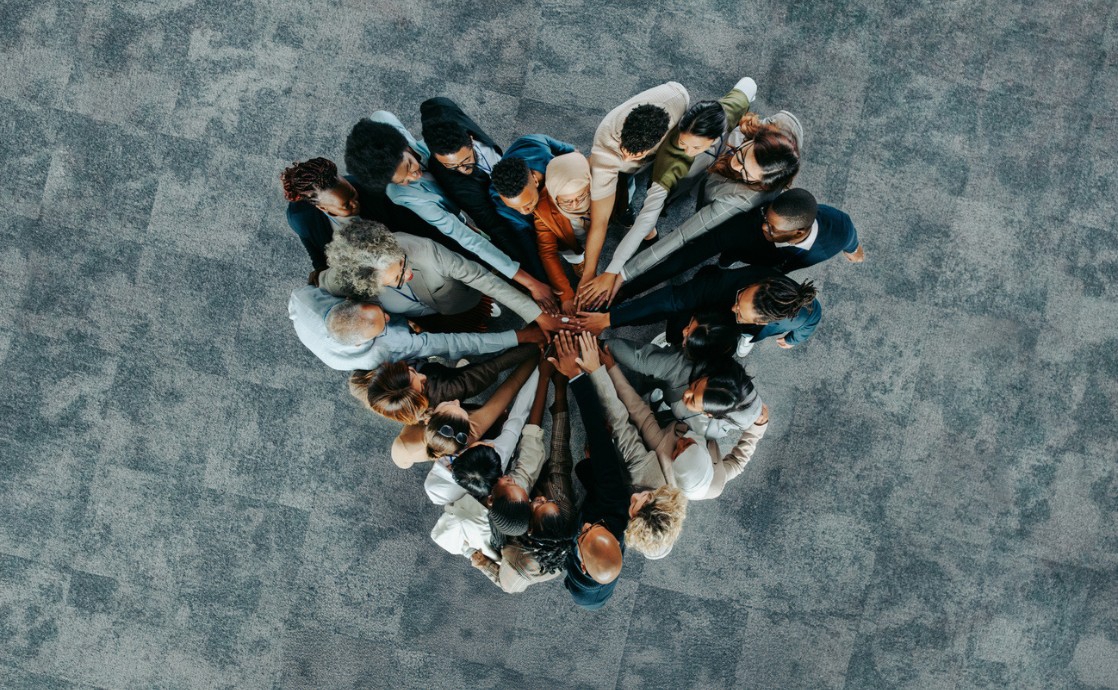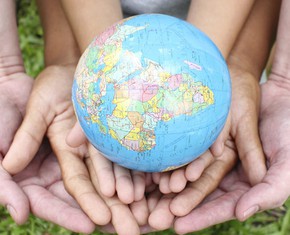The views expressed in our content reflect individual perspectives and do not represent the authoritative views of the Baha'i Faith.
All the world’s religions strongly emphasize service, including helping the poor, the sick, the oppressed, and protecting the environment and its wildlife. When we serve, not only do we help others, but we also feel good, though this is not our main objective.
Though service brings great meaning and joy, it can also be overwhelming. After all, the problems in the world are vast and severe, and each of us is just an individual with our own problems and limitations.
RELATED: How Can I Make a Difference When it Feels Like Nothing Changes?
This can make a person feel paralyzed and inactive because they look at the immensity of the work to be done and do not know where to begin. Or it can make a person feel guilty for all the good deeds that they leave undone.
As imperfect beings, there are a few ways we can move forward.
First, we can acknowledge our own capacity. Baha’u’llah, the prophet founder of the Baha’i Faith, wrote:
“The whole duty of man in this Day is to attain that share of the flood of grace which God poureth forth for him. Let none, therefore, consider the largeness or smallness of the receptacle. The portion of some might lie in the palm of a man’s hand, the portion of others might fill a cup, and of others even a gallon-measure.”
Baha’u’llah explains that the capacity to understand reality varies from person to person. From this, we can understand that all capacities vary as well. Some people are better with numbers, others better with words, others with images, and others with objects.
Difficulties can arise if we forget our limitations and don’t acknowledge our true capacity. We might give food to a homeless person and then walk past other homeless people and not give them anything. This can make us feel guilty.
The forerunner of Baha’u’llah, the Bab, gives us some pertinent advice on this:
“Be lovingly watchful of one another and thus improve your affairs. Should ye find amongst you one who is afflicted with grief, remove his sorrow by any means in your power, and should ye find one stricken with poverty, enrich him to the extent of your ability.”
We see here that all of our service to the world is dependent on our capacity, and we can only serve the world to the extent of that ability. What does this ability entail? Our intellectual, emotional, and physical capacities, our financial means, and our time availability — all of these things determine the extent to which we can serve the world. Some of these things can be shifted. If we are too busy to serve, we may have the option of reducing our working hours. We can also slowly develop our capacities, such as our physical strength, which can help us serve better. Of course, with age, this capacity will naturally diminish. So, acknowledging these limitations is a necessary part of service.
That said, we should not fixate on our limitations. They should never be a reason for inaction. To this end, Abdul-Baha, the eldest son of Baha’u’llah said:
“Do not look at your weakness, nay, rely upon the confirmation of the Holy Spirit. Verily, it maketh the weak strong, the lowly mighty, the child grown, the infant mature and the small great.”
No matter what our situation is, there is usually something we can do for the world, even if it is just smiling at a stranger or picking up one piece of litter. And we should always strive to enhance our capacity to serve.
One way to do this is by nurturing our own talents. All of us are born with certain gifts. Some people are good with numbers, while others are good at drawing. Some are physically strong, whereas others can write well. Often, but not always, our talents also align with our interests which makes pursuing them a joy.
RELATED: Harnessing the Power of Youth to Help Homeless Students
Not only can these talents make us happy, but they can also offer us effective ways to serve the world. A letter written on behalf of Shoghi Effendi, the Guardian of the Bahai Faith and grandson of Abdul-Baha, in 1939 explained:
“There is no general rule, or any particular standard requiring a believer to serve in one field at the exclusion of others. Every believer is to choose for himself any avenue of work in which he conscientiously feels he can render the greatest amount of service to the Cause.”
This means that we don’t all need to do everything. I don’t need to try singlehandedly to solve climate change, world hunger, sex trafficking, and animal cruelty. I can use my talents to work for causes that mean the most to me, and others can do the same. And because we have different talents and interests, our separate yet combined efforts can work towards overcoming the various problems of the world.
















Comments
Sign in or create an account
Continue with Googleor